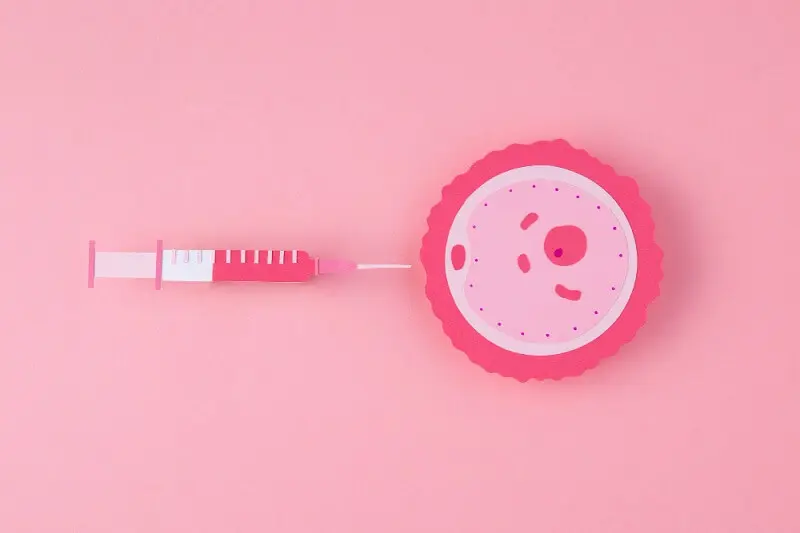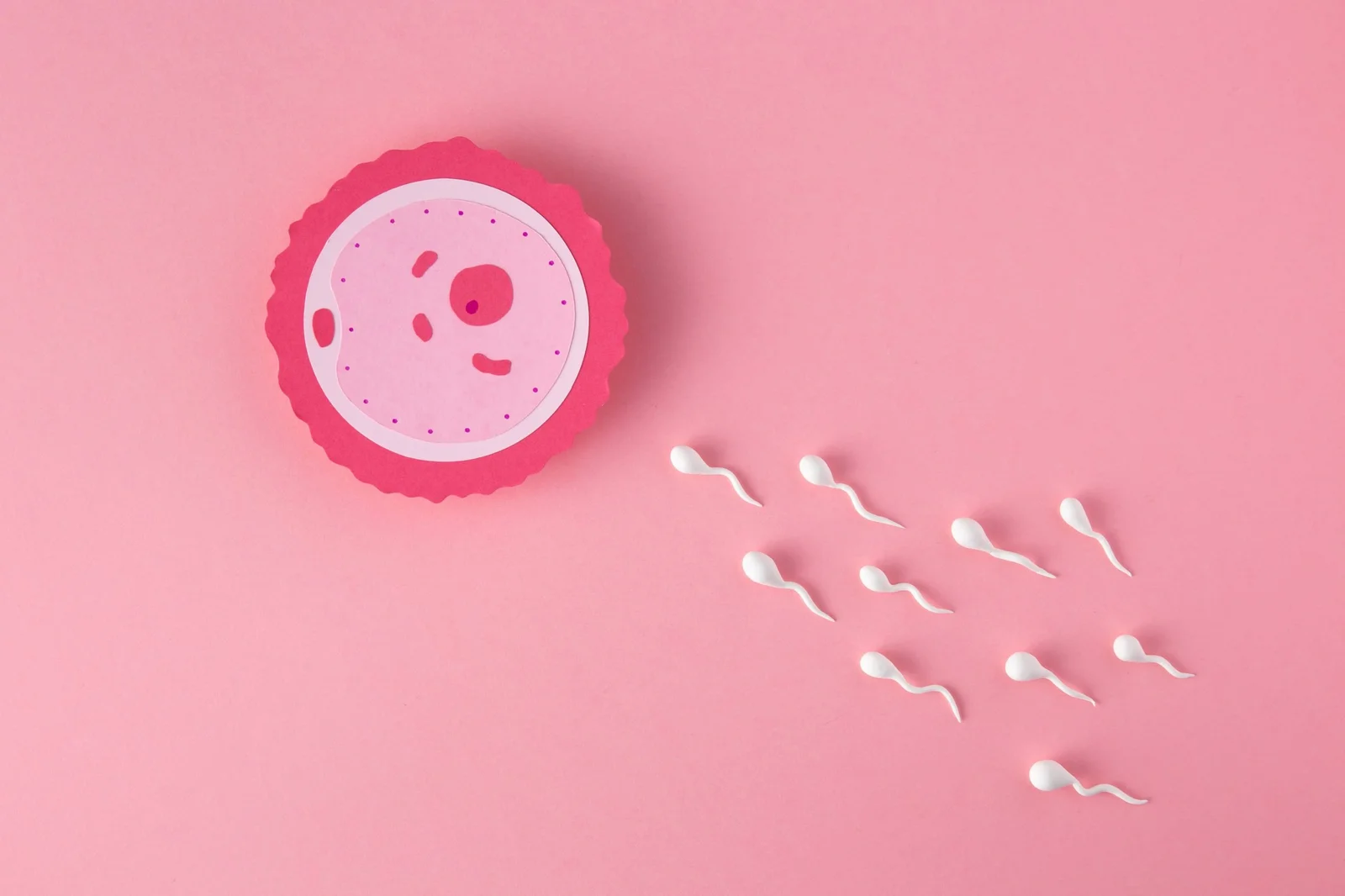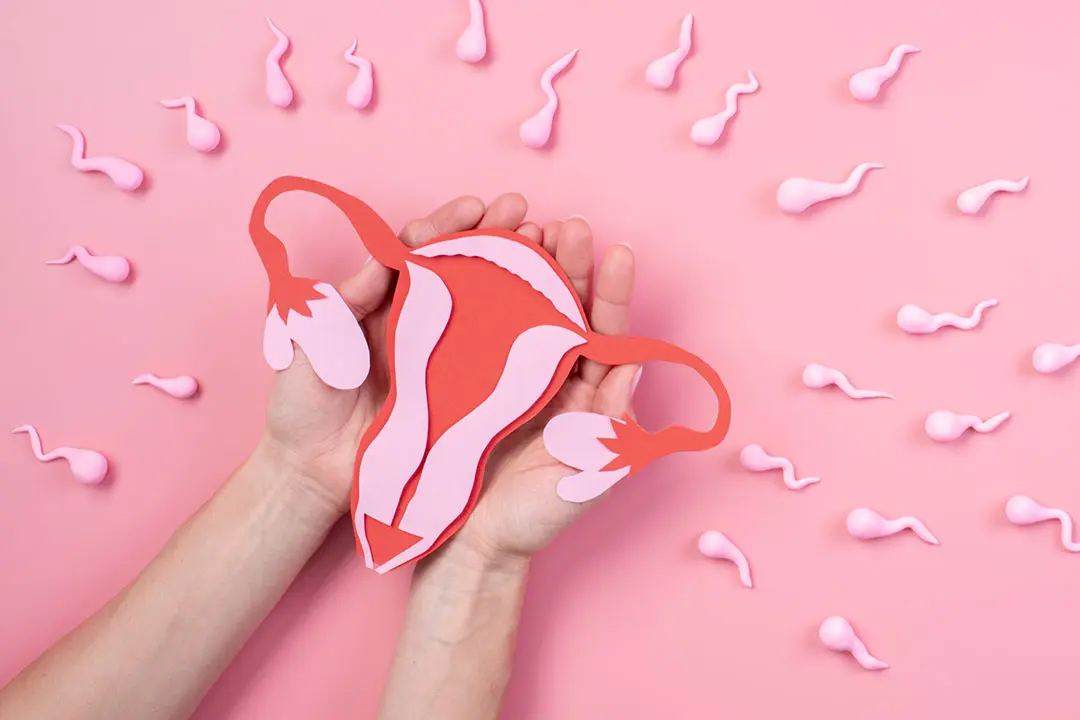Perimenopause can begin in the mid-30s and often brings changes to fertility, mood, and overall health. Many women at this stage still want to expand their families and wonder if IVF during perimenopause is possible.
SensIQ, a doctor-formulated, neurologist-developed system for women in midlife, supports women facing these questions. With insight from experts like Dr. Luke Barr, this article explains fertility realities, medical factors, myths, risks, and options for women considering IVF.
Key Takeaways
- IVF during perimenopause is possible, but irregular cycles, fluctuating hormone levels, and declining egg quality make the process more complex.
- Success rates depend heavily on ovarian reserve and egg quality, with live birth rates dropping after 42 but improving significantly with donor eggs.
- Hormone testing (FSH, AMH, estradiol) helps doctors evaluate fertility potential and adjust stimulation protocols to improve IVF outcomes.
- Pregnancy in perimenopause carries higher risks, including miscarriage and chromosomal abnormalities, so careful monitoring and personalized care are essential.
- Alternatives such as donor eggs, fertility preservation, and natural conception under medical guidance provide additional options for women at this stage.
IVF and Fertility in Perimenopause
Can You Do IVF During Perimenopause?
Yes, IVF can be done during perimenopause, though it is more complex. The menstrual cycle may be irregular, hormone levels often fluctuate, and ovulation is less predictable. These changes make natural conception harder. IVF bypasses these issues with controlled ovarian stimulation and monitoring.
For many women, the decision to pursue IVF comes after months of frustration trying to conceive naturally. Doctors often recommend fertility testing early so treatment can be planned before the transition to menopause. Acting sooner provides a wider range of options and often improves results.
IVF Success Rates in Perimenopause
Success depends on the quantity and quality of eggs. As women age, egg numbers decline, and genetic abnormalities become more frequent. IVF can still wor, but with lower chances than in younger women. A fertility specialist may recommend advanced reproductive technology, such as genetic testing, to improve results.
Women with a reduced ovarian reserve often face fewer eggs available, which limits success rates.
Published research shows IVF live birth rates drop from around 20–25% in women under 38 to below 10% over 42 using their eggs. However, using younger donor eggs can raise success rates back above 50%. These numbers show why realistic expectations and proper counseling are key when choosing treatment.
Can You Still Have an Embryo Transplant?
Yes, embryo transfer is possible in perimenopause. Even if ovulation has stopped, the uterus can often still accept an embryo with proper support. Doctors prepare the uterine lining with estrogen and progesterone before transfer. This means implantation can succeed even as natural cycles fade.
Some clinics even report strong outcomes when frozen embryos from earlier cycles are transferred in perimenopausal women. This shows that uterine health, with the right hormone preparation, may stay receptive longer than natural fertility would suggest.
At What Age Can You No Longer Do IVF?
There is no fixed cutoff, but success declines sharply after age 44. Some clinics limit IVF at advanced ages because of egg quality and risk factors. Women in their late 40s may still try IVF with donor eggs, but results vary. Each fertility treatment plan must balance safety, health, and readiness.
Medical Factors Doctors Often Miss

Stress Mislabeling and Overlooked Testing
Many women are told their mood swings, poor sleep, or irregular bleeding are “just stress.” In reality, these may be signs of perimenopause, including hormonal changes. Without testing, fertility issues can be missed. Checking hormone levelssuch as FSH, AMH, and estradiol, helps doctors evaluate ovarian function.
Hormone Levels and IVF Candidacy
Doctors check hormone values to see if IVF is realistic. Common tests include:
- FSH: High levels (>10–15 IU/L) suggest a weaker ovarian response.
- AMH: Low values (<1.0 ng/mL) show reduced ovarian reserve.
- Estradiol: Assesses uterine readiness and cycle health.
These numbers are not exact cutoffs but help guide treatment. Understanding results helps women make informed decisions with their fertility specialist. Retesting over time also shows how quickly fertility is declining, which helps in planning whether to proceed with IVF or explore alternatives like donor eggs earlier.
Ovarian Reserve, Hormones, and IVF Outcomes
Ovarian reserve—the number of eggs left—directly impacts IVF results. A low reserve means fewer eggs collected during stimulation. Hormones like estrogen and progesterone also affect how the uterus supports pregnancy. These factors explain why perimenopausal IVF cycles need close monitoring and personalized planning.
IVF Medications and Perimenopause Response
Standard medications may act differently in perimenopausal women. Doses often need adjusting to improve egg retrieval. Women with premature ovarian decline may respond poorly, leading to fewer eggs. Donor eggs may then be recommended. Hormone replacement during the cycle also becomes more important to prepare the uterus.
Adjusted Stimulation Protocols in Perimenopause
Women in perimenopause often need modified stimulation protocols. Doctors may use higher doses of gonadotropins to increase follicle growth. Even then, egg numbers may remain low.
Some clinics try mild or combined stimulation to balance safety and yield. The protocol depends on ovarian reserve, hormone levels, and overall goals. Customizing medications increases the chance of retrieving usable eggs.
Myths and Risks of IVF in Perimenopause
Can IVF Cause Perimenopause?
No, IVF does not cause perimenopause. Medications only stimulate existing follicles. They do not use up eggs faster than normal. Perimenopause occurs naturally with age and genetics. IVF may highlight egg decline, but does not trigger it.
Pregnancy Risks in Perimenopause
Pregnancy later in life carries higher risks. Miscarriage rates can reach 30–40% in women over 40, often due to egg quality issues. The chance of chromosomal abnormalities, such as Down syndrome, also rises.
Other risks include high blood pressure, diabetes, and preterm birth. These do not rule out pregnancy but show why medical monitoring is vital. A fertility specialist may recommend extra prenatal checks to improve safety for mother and baby.
Is It Dangerous to Get Pregnant During Perimenopause?
Pregnancy at this stage is not always unsafe, but risks are higher. Common issues include miscarriage, hypertension, and diabetes. Using donor eggs can reduce risks by improving embryo health. With proper medical care, many women in perimenopause still have safe pregnancies.
IVF Options and Alternatives

Perimenopause and IVF with Donor Egg
Donor eggs often offer the best results for women with low reserves. Donors are younger, so embryos are of higher quality. In many cases, perimenopause and IVF with donor egg is the most effective option after 43. This lets women carry a baby despite poor egg health.
Clinics often recommend donor eggs when repeated cycles with a woman’s eggs fail. While the emotional decision can be difficult, success rates with donor eggs can be two to three times higher than with a woman’s eggs at this age. This option allows many women to finally achieve a healthy pregnancy.
How to Get Pregnant Naturally in Perimenopause
Though rare, women can still get pregnant naturally during perimenopause. Ovulation may still happen unpredictably, so tracking helps. Hormone kits or ultrasounds can detect fertile windows. Still, the risk of early menopause ending fertility is high, so guidance from doctors is best.
Fertility Preservation and Egg Options
Women in their 30s who notice early signs may consider preservation. Egg freezing before symptoms of menopause worsen provides more options later. Even women with premature ovarian decline may try minimal stimulation IVF to collect eggs. Preservation creates flexibility if natural fertility drops.
IVF Costs During Perimenopause
IVF can be more expensive at this stage. Added medication, hormone support, and donor eggs increase costs. Insurance coverage varies, and not all plans include fertility treatment. Discussing costs with a fertility specialist early helps with planning. Some clinics offer shared-risk programs for older women undergoing IVF.
Emotional and Lifestyle Realities
Coping with Brain Fog and Mood Shifts
Perimenopause affects both fertility and mental clarity. Brain fog, mood swings, and memory problems make IVF harder. Many women feel ignored when symptoms are dismissed. Care should support both fertility and emotional health.
Support groups, counseling, and practical coping tools can ease this burden. Even simple steps like journaling or mindfulness exercises can improve daily resilience. Women going through IVF in perimenopause benefit most when emotional care is built into treatment.
Balancing Career, Family, and Fertility Stress
Women in their late 30s and 40s often juggle work and family while pursuing IVF. These responsibilities add stress. Combined with hormonal changes, the load feels heavy. Support from partners, workplace flexibility, and counseling can help balance demands.
Planning rest periods during treatment cycles can also reduce burnout. Since IVF often involves multiple appointments and procedures, scheduling support ahead of time helps women manage their commitments better.
What Not to Do During Perimenopause
Some habits make fertility and symptoms worse. Smoking speeds egg decline, and heavy alcohol use disrupts hormone levels. Poor sleep worsens hot flashes and vaginal dryness, which are common symptoms of menopause. Ignoring mental health can also harm IVF results. Seeking expert care improves outcomes and well-being.
Finding Your Best Path Forward
Personalized Care and Science-Backed Support
IVF in perimenopause is complex but still possible. Options include natural conception, donor eggs, and advanced reproductive technology. Success depends on health, age, and personalized care.
Experts like Dr. Luke Barr stress the need for custom treatment. SensIQ shares this approach, offering science-backed support for women navigating midlife fertility and hormonal change.

